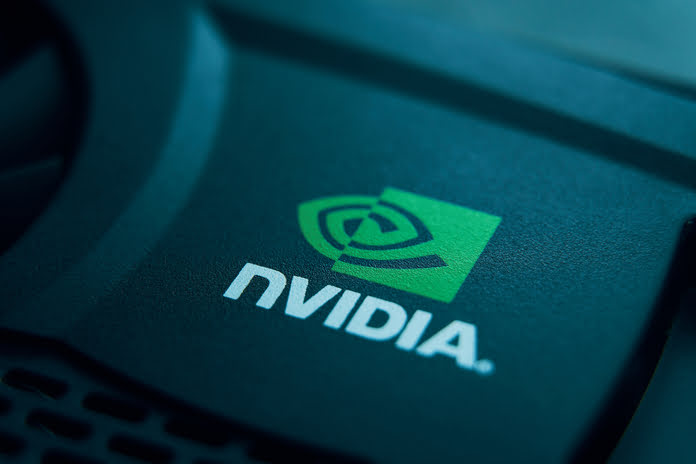Nvidia Corporation (NASDAQ:NVDA), a leading name in artificial intelligence (AI) chipmaking, recently joined the Dow Jones Industrial Average (DJI), a move that underscores its significance in the technology landscape. With Nvidia’s market cap surging to $3.6 trillion, the company has now overtaken Apple (NASDAQ:AAPL) as the world’s most valuable company. This monumental achievement not only cements Nvidia’s place in the stock market but also brings AI technology into the spotlight on an even grander scale.
What Nvidia’s Entry to the Dow Jones Means
For years, the Dow Jones has represented a select group of America’s largest and most influential companies, spanning various industries. Nvidia’s inclusion in this prestigious index signifies the growing importance of AI and semiconductor technology in the global economy. While many Americans are familiar with the Dow Jones as a symbol of financial strength, Nvidia’s addition makes the company a household name across the U.S., drawing increased attention to AI’s role in shaping the future.
According to Callie Cox, chief market strategist at Ritholtz Wealth Management, Nvidia’s Dow Jones entry will make AI more visible to the average American. “A lot of America is going to be introduced or at least have to get a little bit more familiar with Nvidia, and all of what Nvidia means in this AI story,” Cox shared in a recent interview.
AI Market Growth and Nvidia’s Leading Position
Nvidia’s market strength lies in its cutting-edge AI chips, which power applications ranging from advanced data centers to autonomous vehicles. Analysts predict the AI chip market will grow by 99% in 2024 and another 74% in 2025, driven by a surge in demand for AI-powered solutions. Nvidia’s CEO, Jensen Huang, has been vocal about the “insane” demand for the company’s products, reflecting confidence that Nvidia will continue to thrive as AI adoption accelerates.
Despite some skepticism over a potential AI bubble, Nvidia has repeatedly dispelled these concerns by delivering consistent revenue growth. In its latest quarter, Nvidia surpassed expectations with strong financials and showed no signs of a slowdown. According to Bloomberg’s consensus estimates, 90% of analysts recommend buying Nvidia stock, with a target price of $149.38, up from its current level of $147.36.
Nvidia’s Competitive Edge Over Rivals
Nvidia’s ascent to the top of the AI market has been marked by innovations that outshine competitors like Intel (NASDAQ:INTC), which Nvidia replaced in the Dow. While Intel has faced ongoing production challenges, Nvidia has capitalized on the growing AI demand with its advanced GPU technology. Intel, once a tech leader, has seen its stock plummet nearly 50% this year due to investor concerns about its ability to adapt to changing industry demands.
By securing partnerships with Taiwan Semiconductor Manufacturing Company (TSMC), Nvidia has reinforced its global supply chain, allowing the company to scale production to meet the rising AI chip demand. This strategic partnership enables Nvidia to produce its high-performance chips at scale, providing a competitive edge that few companies can match.
Challenges Ahead: Trade Tensions and Tariffs
With Donald Trump’s re-election, Nvidia and the broader semiconductor industry could face challenges from heightened trade tensions and tariffs, especially on goods imported from China. Trump has indicated plans to impose tariffs ranging from 10% to 60% on Chinese imports, which could impact Nvidia’s supply chain, as its manufacturing partner TSMC sources components from China.
Jefferies analysts have expressed concerns over how these new trade restrictions could affect Nvidia’s production costs and overall supply chain. “Trump’s victory brings further uncertainty to the semiconductor sector in terms of its impact on additional China restrictions, higher tariffs, and CHIPS Act funding,” they noted.
D.A. Davidson analyst Gil Luria emphasized the risks of global supply chain disruptions, noting, “Disruptions to the global supply chain would be a problem for Nvidia because they’d be a problem for TSMC.” These factors may challenge Nvidia’s growth trajectory, though the company’s dominance in AI technology positions it well to navigate these potential obstacles.
Is Nvidia Stock a Buy, Hold, or Sell?
For investors, Nvidia’s track record and growth prospects make it an attractive investment. Following another strong quarterly performance, many analysts maintain a “buy” rating on Nvidia stock, including experts at Loop Capital Markets, Truist Financial, and Needham. Out of the 49 analysts covering the stock, 45 recommend a “strong buy,” three rate it as a “moderate buy,” and only one suggests a “hold.”
Analysts also forecast that Nvidia’s stock price could increase significantly over the next year. With a target price of $235.75, analysts see potential upside, while a high-end target of $285 suggests a 36.5% increase.
Nvidia’s Place in the Future of AI and Tech
Nvidia’s inclusion in the Dow Jones Industrial Average marks a significant milestone in its journey and underscores the growing importance of AI in the global economy. With strong fundamentals, a solid financial position, and innovative products, Nvidia is poised to shape the future of AI and computing. The company’s competitive edge, strategic partnerships, and high demand for AI technology make Nvidia stock a compelling choice for long-term investors.
While trade tensions and tariffs may present challenges, Nvidia’s strength in AI innovation suggests that it is well-prepared to navigate these hurdles. For those looking to invest in a company with substantial growth potential, Nvidia’s story in the AI era is only just beginning.
Featured Image: Megapixl









